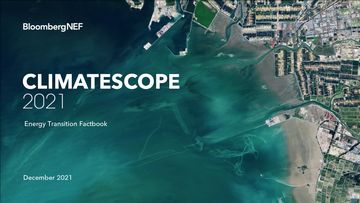Uzbekistan
With a cumulative score of 1.39, Uzbekistan ranks number 63 among emerging markets and number 92 in the global ranking.
- Emerging markets
- Asia-Pacific
1.79 / 5
Power score
0.70 / 5
Transport score
0.90 / 5
Buildings score
Low-carbon strategy
Net-zero goal and strategy
In January 2021, Uzbekistan unveiled plans to reach carbon neutrality by 2050. It will prioritize decarbonizing power generation capacity in order to do so.
Nationally Determined Contributions (NDC)
Submitted to the UNFCCC in April 2017, Uzbekistan has established a nationally determined contribution (NDC) strategy of decreasing greenhouse gas (carbon dioxide, methane and nitrous oxide) emissions per unit of GDP 10% by 2030, from a 2010 baseline.
Fossil fuel phase-out policy
Instead of phasing out fossil fuels, Uzbekistan plans on expanding its fossil fuel power plant capacity from 10.6GW in 2019, to 14.7GW in 2030, and increasing thermal power generation from 56.4TWh in 2019, to 70.7TWh in 2030.
Power
Power policy
In May 2020, Uzbekistan’s Ministry of Energy announced a goal to source 25% of power from renewables by 2030, which would require an estimated 5GW of solar and 3GW of wind. It has rolled out a number of auctions in order to contract this capacity, with some of these projects now under development.
Power policies
Power prices and costs
Stable and reliable electricity has been the priority for Uzbekistan's distribution utility, JSC regional Power Grids, and its predecessor, Uzbekenergo. According to the Ministry of Energy, until citizens can be provided with stable power 24 hours a day, a time-based, or differentiated, tariff will not be offered to customers. The country does not have a sufficiently mature metering system to offer customer time-of-use electricity tariffs but is currently working to implement one. Distribution utilities and the Ministry of Energy in Uzbekistan have increased retail electricity tariffs in order to recover costs, but these prices have remained low enough to avoid subsidies.
Power market
In May 2019, Uzbekistan's electricity grid and national utility JSC Uzbekenergo were split into three independent joint-stock companies. JSC Thermal Power Plants manages and develops the country's coal, gas and large hydro projects, but the generation segment of Uzbekistan's power market is partially liberalized and private-sector players are free to build renewables projects. The country’s transmission and distribution segments are managed by JSC National Electric Networks and JSC Regional Electric Networks, respectively, and neither are privatized. Coal and gas make up most of the country’s current generation mix.
Installed Capacity (in MW)
Electricity Generation (in GWh)
Utility privatisation
Which segments of the power sector are open to private participation?
Wholesale power market
Does the country have a wholesale power market?
Doing business and barriers
Uzbekistan does not yet have any interconnected utility-scale clean energy projects, meaning that it is unclear what the associated risks are with developing clean energy in the country. Companies participating in the country's inaugural clean energy auctions should be conscious of the challenges related to working with a utility integrating solar and wind power into the country's grid for the first time.
Currency of PPAs
Are PPAs signed in or indexed to U.S. Dollars or Euro?
Bilateral power contracts
Can a C&I (Commercial and Industrial) customer sign a long-term contract (PPA) for clean energy?
Bilateral power contracts
Can a C&I (Commercial and Industrial) customer sign a long-term contract (PPA) for clean energy?
Bilateral power contracts
Can a C&I (Commercial and Industrial) customer sign a long-term contract (PPA) for clean energy?
Fossil fuel subsidies
Does the government influence the wholesale price of fossil fuel (used by thermal power plants) down through subsidies?
Fossil fuel taxes
Does the government influence the wholesale price of fossil fuel (used by thermal power plants) up through taxes?
Transport
EV market
Uzbekistan lacks a clean transport target, although it is quickly ramping up its nascent electric vehicle market. Imports of electric vehicles rose from just 13 in 2018 to more than 130 in 2020. In the first quarter of 2021, these imports rose to 138 units. In January 2021, Uzbekistan President Shavkat Mirziyoyev announced that the country should aim to produce 50-60,000 electric vehicles down the line, but that is nothing more than an aspiration.
EV policy
In May 2021, Uzbekistan's Ministry of Finance discussed the possibility of amending its tax code to exempt electric car imports from import taxes (there is no similar amendment for income taxes under discussion), although this is not yet official legislation. That would mean companies importing electric vehicles would only be subject to the 15% value-added tax, making it cheaper to bring these vehicles into the country. The government also mandated that state-owned automaker Uzavtosanoat start producing electric vehicles domestically, although no target date has been set for such production.
Transport policies
Fuel economy standards
Does the country have a fuel economy standard in place?
Buildings
Buildings market
Almost all of Uzbekistan's power generation currently is thermal (88%), meaning that electric vehicles, while cleaner than internal combustion engines (ICE), would not be as effective in reducing Uzbekistan's overall emissions. Additionally, the country has very few electric vehicle charging stations to date, which make the roll-out of electric vehicles difficult, particularly outside of large population centers like Tashkent.
Energy performance standards
Are there minimum energy performance standards for buildings?
Energy efficiency plan
Does the country have a national energy efficiency plan?
Buildings policy
Uzbekistan has not disclosed any energy efficiency or energy performance policies for its buildings, outside of its broader aspirational target.

